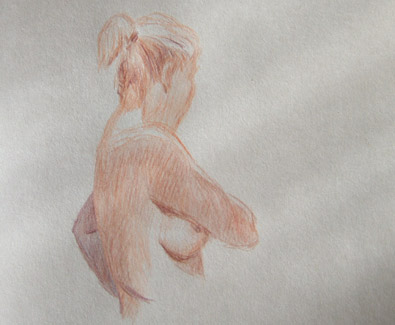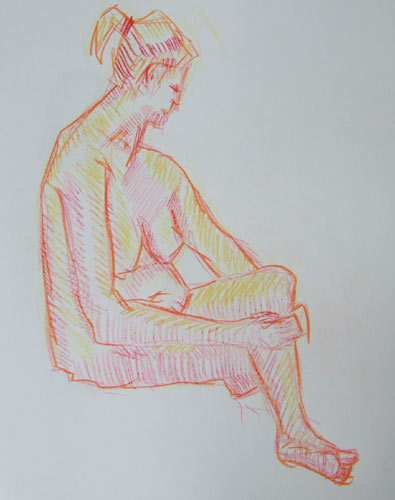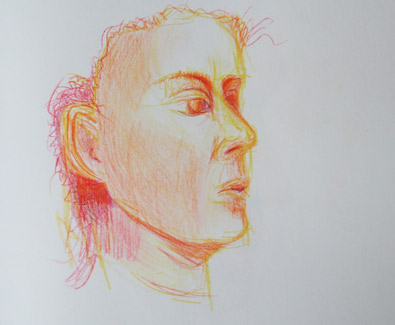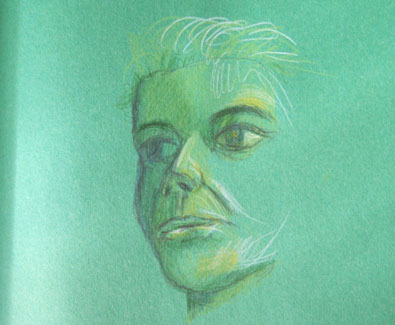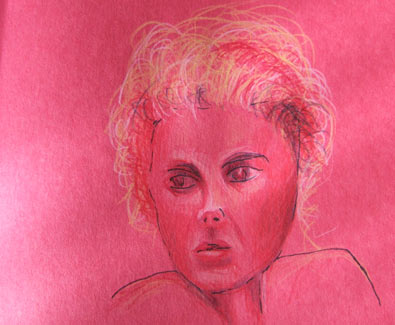One of the better descriptions of the agonies and ecstasies of life drawing can be found at Everyday Matters - illustrator/writer
Danny Gregory explores aspects of the human form. Danny's right - part of the drawing process is the artists themselves are laid bare - your every error, your every inadequacy is laid out, 'permanently' on paper. It's daunting holding your work up for comment or critique, even in an informal session. Friends and family have no care for this - they simply think:
arms don't look like that, or
oh dear, according to your drawing that poor model seems to have had an interlude with a chainsaw.
Call yourself an artist. My theory is that it takes about 10,000 hours to get good at something (about five years, full time), and about another 10,000 hours (total ten years, working full time) to become an expert. You might get there faster with a motivated teacher, but if you've become a genuine, world-class expert in less than ten years, let me know so I can celebrate you. Meanwhile, only about another 19,999 hours to go...
